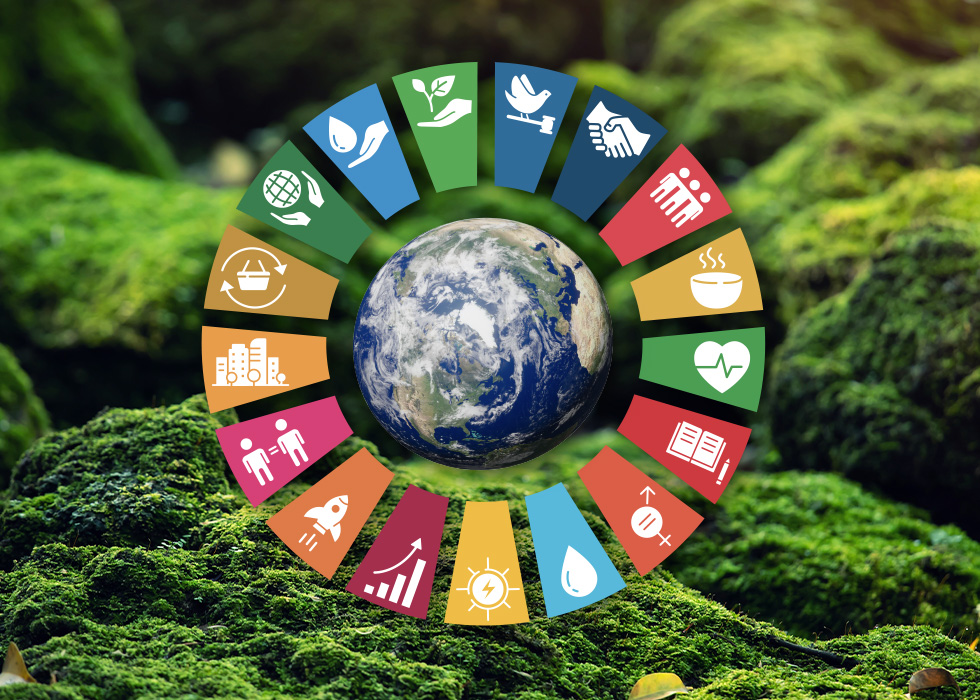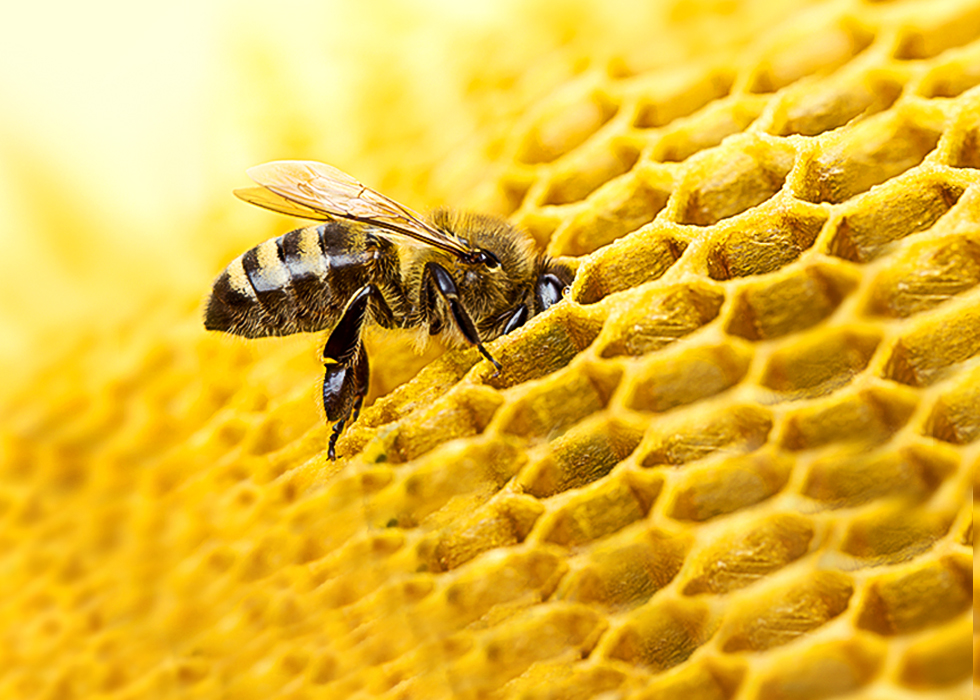Better Soil, Better Life: 5 Ways Companies and Communities Can Celebrate World Soil Day

A single teaspoon of garden soil contains more living organisms than humans on Earth.
The ground beneath our feet hosts a quarter of our planet’s biodiversity, home to billions of earthworms, insects, fungi, bacteria and other invertebrates. When soil is healthy, it can even combat climate change from the ground up. It plays a vital role in storing and purifying water, creating resilience to extreme weather and drought and preventing erosion. The health of all plants and animals depends on the cycle of water, air and nutrients that takes place in the dirt, meaning healthy soil is key to promoting and preserving the biodiversity that is crucial to the ecosystem. In fact, 95% of the food we eat daily comes from the soil.
Yet, the issue of soil health often gets left in the dust. Much of our agricultural soils have already degraded due to deforestation, industrial pollution and unsustainable agricultural practices. By 2050, 90% of all soils are set to be degraded.
December 5, also known as World Soil Day, is a day when we focus our attention on the importance of healthy soil and advocate for the sustainability of soil resources. Life starts in the soil, which is why everyone — from individuals to corporations — has a responsibility to protect it. Hanwha is committed to preserving biodiversity through its soil-friendly initiatives, which is why Hanwha Newsroom has compiled a list of five ways that anyone can celebrate World Soil Day, in the office or at home.
1. Plant Trees

Not only is healthy soil vital to trees, trees are also vital to healthy soil. Trees help stabilize soil erosion, increase aeration and water infiltration and add nutrients to the ground. An excellent way for anyone to celebrate World Soil Day is to plant trees at home, volunteer with local tree-planting organizations or support a variety of reforestation charities.
Companies can also pitch in by donating a percentage of sales to fund tree-planting projects or letting employees get hands-on with their own tree-planting parties. For example, Hanwha has spent the past decade planting nine Hanwha Solar Forests to help combat the climate crisis. But planting even a single tree can make a world of difference.
2. Choose Biodegradable or Green Plastics

Plastic pollution is a global threat to soil health. When microplastics — or tiny pieces of plastic debris from consumer products and industrial waste — enter the soil, they reduce agricultural yields, harm earthworms and other organisms and even work their way up the food chain to harm humans.
To help stop plastic pollution, anyone can take part in regular practices that reduce plastic waste, such as using reusable water bottles and grocery bags and recycling correctly. When you do need to use plastic, biodegradable garbage bags and bio-based plastic packaging are great options. Look on the product labels for words like “biodegradable,” “compostable” or “home compostable.” Or, if you’re in the U.S., keep an eye out for the USDA Certified Biobased Product label.

Companies can start reducing their plastic footprint by figuring out how much plastic is consumed in their business and then taking steps to reduce unnecessary plastic use. Implementing simple company-wide initiatives, such as changing from disposable to reusable coffee cups and encouraging people to use a water dispenser instead of buying bottled water, can make each workday a little greener. Companies can also invest in office supplies or food products packaged in biobased and biodegradable plastic packaging. Eco-friendly bioplastics like this packaging developed by Hanwha can help fight microplastic soil contamination.
3. Reduce Food Waste

The food we buy from the grocery store requires an enormous amount of land, water, nutrients and energy to produce. When food is thrown into a landfill to rot, it not only produces methane which contributes to climate change, but also prevents those nutrients from returning to the soil. The amount of healthy topsoil, where plants get their nutrients to grow, is declining faster than the planet can regenerate it, and high amounts of food waste are adding to this problem. Therefore, reducing food waste is key to making the most of our current healthy topsoil.
Anyone can reduce their own food waste by keeping track of food inventory at home, buying only what they need, creating meal plans and properly storing and eating leftovers. Composting is also an excellent way to make sure the nutrients from uneaten food or food scraps are returned to the soil.
For companies, educating employees is often the first step to reducing food waste. Managers can try setting up an office composting plan, cleaning out the office fridge regularly and planning ahead for food preferences, portion sizes and dietary needs at work events. Another great option is to redistribute leftovers through a waste management provider to nonprofit organizations in local communities.
4. Do Your Part to Cultivate Biodiversity

Healthy soil depends on having a vibrant range of life above and below the ground, and native plants are the foundation of that balanced ecosystem.
By researching native flora and fruits and planting a variety in our own backyards or hanging gardens, anyone can help restore local ecosystems and promote biodiversity. Not only are native plants easier to care for, but they also help the bees, butterflies and birds who use native plants as a source of food and shelter. Buying local foods and seasonal produce at farmers’ markets and eating a diverse, soil-friendly diet are easy ways to protect biodiversity and eat it, too. Supporting local farms promotes the use of soil-friendly farming practices over monoculture, the process of growing only one crop in a field at once. This method, which is responsible for the year-round availability of produce in grocery stores, also requires more pesticides and herbicides, reduces biodiversity and degrades the soil. By contrast, buying locally from sustainable farmers supports your local community, reduces the distance food must travel and protects pollinators — and the food is fresher and tastier, too.

Companies can help by supporting local nurseries specializing in native species and conservation efforts, such as Hanwha’s efforts to preserve food biodiversity with the Solar Beehive project. Companies can also create other in-office initiatives to support biodiversity, like choosing local foods and seasonal fruits and vegetables for catering events and company cafeterias.
5. Advocate for Healthy Soil

World Soil Day's mission is to raise awareness of soil’s importance. Both companies and individuals alike can take the time to learn about soil health's importance by watching documentaries, reading articles and sharing what they learned with friends and family. Through soil-friendly challenges or contests with friends or coworkers, everyone can take part in the fun. Of course, don’t forget to share photos of #WorldSoilDay celebrations on social media.

Sowing the Seeds for a Better Tomorrow
Healthy soil is the foundation for life as we know it. We grow on it, build on it, build from it — yet, if we’re not careful, we can treat it like dirt. World Soil Day is our chance to raise awareness of the importance of soil and how it helps us grow and thrive in our daily lives. Everyone needs to do their part to care for the planet’s topsoil. Companies like Hanwha are using sustainable initiatives to preserve soil quality and promote biodiversity, but any person or company, big or small, can take steps to ensure our planet’s future.
Get the latest news about Hanwha, right in your inbox.
Fields marked with * are mandatory.
- Non-employee
- Employee





